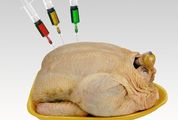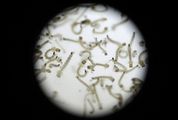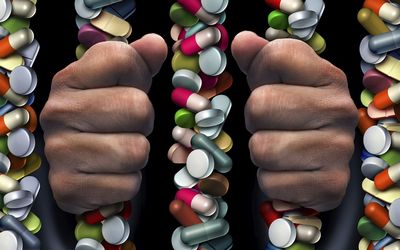THE government should focus on rehabilitation rather than criminalisation as part of attempts to curb the increasing drug problem in SA, a mental health expert says.
According to the 2014 United Nations Office on Drugs and Crime report, more than 270,000 South Africans were defined as problem drug-users.
The South African Depression and Anxiety Group has previously said illegal drug consumption in SA is double the world norm and this contributed to an increase in crime rates, especially among the poor and unemployed.
The government has often been criticised for largely concentrating on criminalising and arresting illicit drug users and dealers.
In 2014, the government amended the Drugs and Trafficking Act, which means that anyone caught in possession of nyaope (a potent mix of various substances including heroin and rat poison) can be prosecuted, facing up to 15 years imprisonment or a hefty fine.
Stellenbosch University psychiatrist Dr Abdul Domingo said on Wednesday that several countries were in the process of re-evaluating the risk of certain illicit substances, such as cannabis, as well as the legislation used to regulate substance use and possession.
"To rely on criminalisation and incarceration as the only form of intervention undermines these individuals’ future prospects of education and employment … it fails to offer any form of clinical input and care and ultimately worsens the plight of drug users, their families and communities," said Domingo.
Domingo is a senior lecturer at Stellenbosch University’s faculty of medicine and health sciences and specialist psychiatrist at Stikland Hospital.
He was speaking on the issue to mark substance abuse awareness week, which is commemorated each year from June 25-30.
"Many countries are now trying to assess and implement policies that acknowledge the risks associated with illicit substances, protect young people from having easy access to it, protect communities from drug-related crime as well as offer strategies to rehabilitate rather than incarcerate.
"This growing momentum to relook at drug policy is also a challenge in SA, one that should be faced if we wish to protect our young population and limit future drug-related harms," said Domingo.
He said for many people, the cycle of drug addiction started as an experiment to experience a state of temporary euphoria. Most individuals who experiment with an illicit substance will not become addicted to it, but some are at higher risk of developing a chronic addiction than others, he said.
"Some people are genetically predisposed to addiction, while others may be at higher risk due to environmental factors such as easy access to substances or circumstances that promote the use of substances, for example, to regulate emotional discomfort or manage abusive environments." Anti-drug alliance CEO Quintin van Kerken urged the government to decriminalise and regulate drug use, just as Switzerland had done.
Switzerland adopted a policy of providing pharmaceutical heroin and clean needles to those addicted to illegal heroin. Some observers say this has greatly reduced deaths while cutting crime rates.
"Addiction is a health problem and should not be a criminal issue … why arrest someone for taking something which will make them feel better? If we decriminalise and regulate, then we have control, we can make sure that the drugs people are taking are clean and pure," said Van Kerken.
Earlier this week, President Jacob Zuma called on children and young people to refrain from alcohol and drug abuse. Zuma also appealed to those who are already addicted to seek treatment.





















